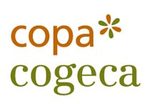|
|
| 26 mar 2021 |
07:36 |

|
Postponing the inclusion in the taxonomy delegated acts of agriculture is pragmatic and consistent
Copa and Cogeca take note that agriculture will not be part of the first set of economic activities that will be covered under the re-drafted Taxonomy delegated act as discussed yesterday by the Member States Expert Group on Sustainable Finance. European farmers and agri-cooperatives welcome this postponement as the only way to ensure consistency with the ongoing discussion of the future CAP.
|
|
Reacting to this announcement, Pekka Pesonen, Copa-Cogeca Secretary General said, “EU politics is more and more a question of timing and today it seems logical to us that the Commission has decided to postpone its work on the agricultural sector with regards to green finance. As the CAP is under discussion within trilogues, it would not make sense to see a decision taken in a delegated act when many issues are not yet decided by co-legislators. However, once a compromise would be found on the CAP, discussions should resume quickly. We will call for a swift inclusion of agriculture in the taxonomy delegated act after the adoption of the CAP providing that we will get an equivalence with the CAP and the proposed criteria.”
The European Commission underlines in various communications around taxonomy, that agriculture plays a central role in climate change mitigation while also delivering benefits for adaptation, reversing biodiversity loss, and fostering other sustainable development goals. This is a fact. However, we noticed that the agricultural sector concerns are not considered in the work on the delegated acts and the request concerning the involvement of farmers and agri-cooperatives in the work on the platform was completely ignored. Copa and Cogeca hope that when agriculture will come back to the forefront, after the CAP agreement, discussions will be held with farmers and their cooperatives!
Finally, while agriculture is not included in this first list of sectors covered by the taxonomy, bioeconomy, bioenergy and forestry activities are. When it comes to bioeconomy, we welcome some of the improvements made that regard the use of renewable raw materials coming from food and feed crops but unfortunately this is not the case for the production of biofuels. For anaerobic digestion of bio-waste, we cannot support that for bio-waste treatment plants, the share of food and feed crops used as input feedstock is less or equal to 10%.
On bioenergy, taxonomy delegated acts must remain aligned with the Renewable Energy Directive (REDII) sustainability and greenhouse gas savings criteria. This Directive has only recently been amended, the implementation at national level is still ongoing. There is a risk of severe market distortion if the taxonomy anticipates stricter and additional requirements.
On forestry, Copa and Cogeca welcome some of the improvements made such as the recognition of the Sustainable Forest Management definition, the role of national legislation, the exclusion of forest holdings below 25 hectares to perform a climate benefit analysis and the importance of wood biomass for bioeconomy. However, there are still a lot of issues that are not clear such as reporting, the reference to the REDII and the role of forest certification. On the part concerning ‘Do no significant harm’ (DNSH), no additional rules should be further proposed to the already existing EU legislation. Therefore, we ask for the removal from the DNSH on biodiversity of the point to follow closer-to-nature practices as that is a concept that is not even defined at EU level.

|
|
|
|